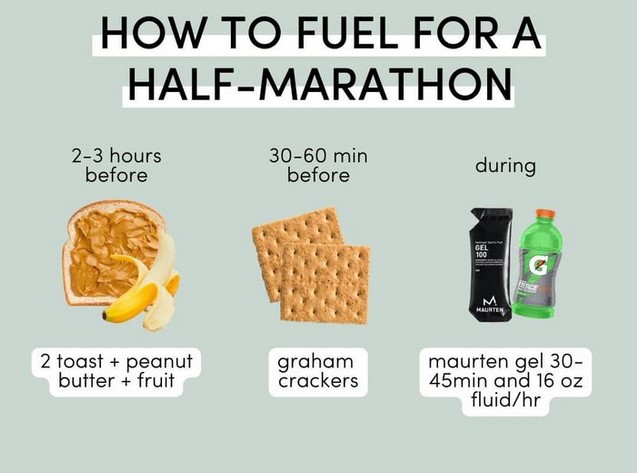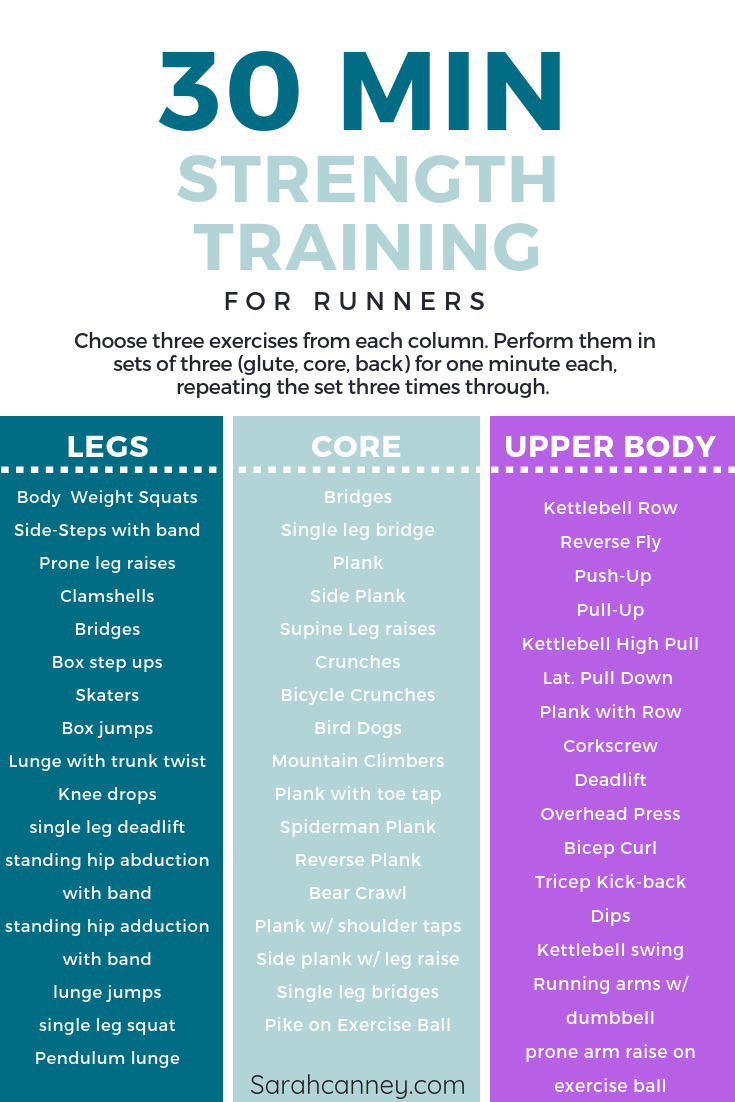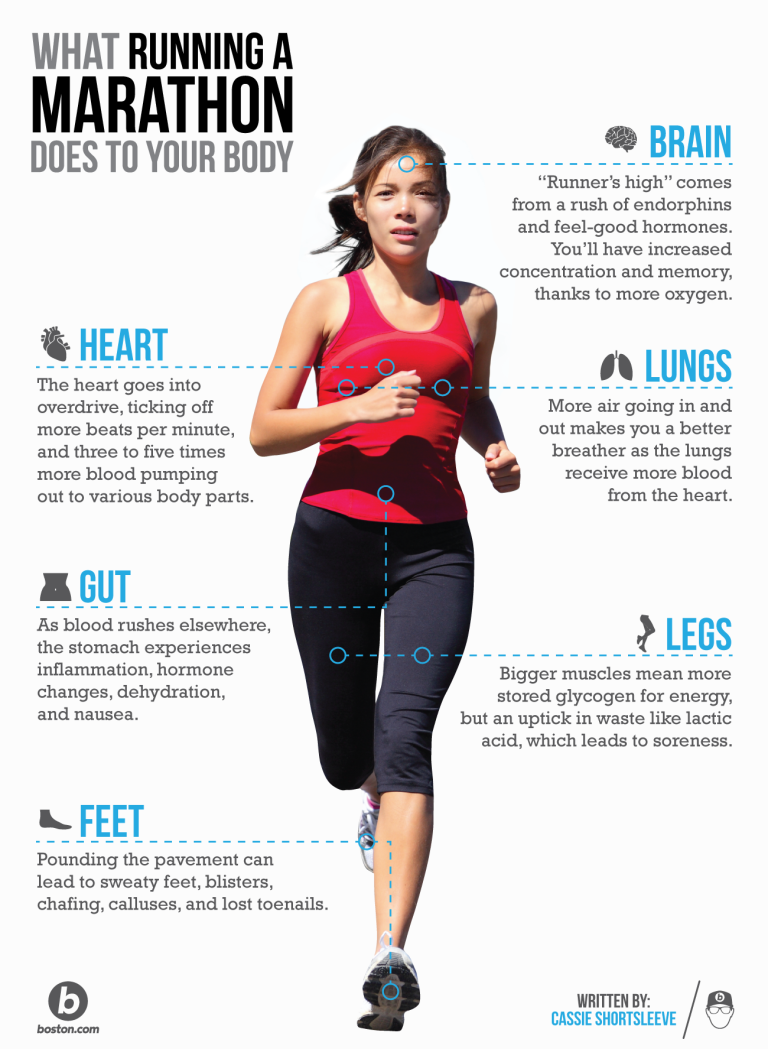What Happens If You Run a Marathon?
Running a marathon can lead to physical exhaustion and muscle soreness. It also boosts cardiovascular health and mental well-being.
Participating in a marathon is a significant physical challenge that can have both immediate and long-term effects on your body and mind. When you engage in this endurance activity, your muscles, heart, and lungs are put to the test, leading to fatigue and soreness post-race.
However, completing a marathon can also bring a sense of accomplishment, improved cardiovascular fitness, and a positive impact on your mental health. We will explore the various physical and mental outcomes of running a marathon, highlighting both the challenges and benefits associated with this demanding endurance event.
Credit: www.businessinsider.com
The Physical Effects
Running a marathon is an incredible achievement that requires months of training, dedication, and mental strength. While the psychological benefits of completing a marathon are well-documented, it’s equally important to consider the physical effects that this grueling endurance event can have on your body. In this blog post, we’ll delve into the various ways running a marathon can impact your muscles and cause changes in blood pressure.
Impact On Muscles
Running a marathon puts tremendous strain on your muscles, especially those in your lower body. The repetitive motion of running for long distances can lead to micro-tears in the muscle fibers, resulting in soreness and stiffness. These muscle tears trigger an inflammatory response, which is the body’s natural way of repairing damaged tissue. As a result, you may experience muscle pain and swelling in the days following the marathon.
Beyond the immediate soreness, running a marathon also places a significant demand on your muscles’ energy stores. Your muscles primarily rely on glycogen, a form of glucose, for fuel during long-distance running. As you continue to push yourself, your glycogen stores become depleted, causing feelings of fatigue and exhaustion. This depletion can also lead to muscle cramps, as the lack of glycogen impairs the muscle’s ability to contract and relax properly.
Additionally, running a marathon can cause muscle breakdown. The extended duration and intensity of the race can result in the breakdown of muscle proteins, leading to muscle damage. This effect is most notable in runners who have not adequately prepared their bodies for the rigors of the marathon.
Changes In Blood Pressure
- During a marathon, there are several factors that can influence your blood pressure. Firstly, the increased physical exertion places greater demands on the cardiovascular system, causing the heart to pump harder and faster. This results in increased blood pressure.
- Furthermore, the body’s response to prolonged exercise includes the release of stress hormones such as adrenaline, which can elevate blood pressure. The increased production of adrenaline, combined with the increased heart rate, can cause a temporary spike in blood pressure during and immediately after the marathon.
- It’s worth noting that the impact on blood pressure can vary depending on various factors, including the individual’s fitness level and pre-existing medical conditions. For most healthy individuals, the changes in blood pressure during a marathon are temporary and return to normal after a period of rest.
In conclusion, running a marathon can have significant physical effects on your body. It can lead to muscle soreness, fatigue, and breakdown, while also causing temporary changes in blood pressure. However, it’s important to remember that these effects are typically transient and can be mitigated through proper training, nutrition, and recovery strategies.
The Mental Impact
As you push your body to its limits during a marathon, there’s no denying the immense mental impact it can have. Your psychological endurance, as well as emotional highs and lows, play a significant role in the marathon experience.
Psychological Endurance
Enduring a marathon goes beyond physical strength—it necessitates unwavering psychological endurance. Amidst the grueling miles, runners must summon inner resilience, mental toughness, and sheer determination to conquer doubts and push through the pain. It’s a true test of your mental fortitude, as you defy self-imposed barriers and overcome mental fatigue to reach the finish line.
Emotional Highs And Lows
The journey of a marathon is filled with emotional highs and lows. Runners experience euphoria and a sense of achievement as they pass milestones, but they may also confront moments of doubt and despair. The mental rollercoaster during a marathon includes feelings of elation interwoven with moments of mental struggle, ultimately culminating in an immense sense of pride and accomplishment at the race’s end.
Recovery And Rehabilitation
After completing a marathon, adequate recovery and rehabilitation are crucial.
Post-race Nutrition
Post-race nutrition is vital for replenishing the energy stores.
- Focus on consuming protein-rich foods to aid muscle repair.
- Include complex carbohydrates to restore glycogen levels.
- Stay hydrated by drinking water and electrolyte-rich beverages.
- Consider anti-inflammatory foods to reduce muscle soreness.
Physical Recovery Time
Allow for sufficient physical recovery time post-marathon.
- Listen to your body and rest when needed.
- Engage in light stretching and low-impact activities to promote circulation.
- Gradually reintroduce running to prevent injuries.
- Consider massage therapy to aid in muscle recovery.
Long-term Health Considerations
Completing a marathon is an incredible achievement that requires dedication, training, and mental toughness. However, it is important to consider the long-term impact on your health. While running a marathon can be a fulfilling experience, there are several factors to keep in mind, including cardiovascular health and joint stress.
Cardiovascular Health
Running a marathon can have a significant impact on your cardiovascular system. The cardiovascular benefits of marathon training are well-documented. Regular endurance training strengthens your heart, improves blood circulation, and lowers your resting heart rate. These positive effects can last long after completing a marathon, reducing your risk of heart disease and related conditions.
Joint Stress And Long-term Impact
Although marathon training has numerous health benefits, it is also important to consider the stress it places on your joints. The repetitive impact of running long distances can put strain on your joints, potentially leading to long-term issues. However, there are several ways to minimize the impact on your joints:
- Invest in proper running shoes with adequate support and cushioning to absorb shock.
- Include strength training exercises in your workout routine to strengthen muscles and stabilize joints.
- Gradually increase your mileage to allow your body time to adapt and avoid overuse injuries.
- Listen to your body and take rest days when needed to allow for recovery.
- Consider cross-training activities, such as swimming or cycling, to reduce the repetitive stress on your joints.
By taking these precautions and listening to your body, you can minimize the long-term impact on your joints while still enjoying the immense physical and mental benefits of marathon running.
Training And Preparation
When it comes to running a marathon, proper training and preparation are essential for a successful experience. Adequate physical training and mental preparation can make a significant difference in completing a marathon.
Physical Training
Physical training is the foundation for preparing your body to endure the 26.2-mile challenge of a marathon. It involves gradually building up your mileage, improving endurance, and working on strength and flexibility.
- Increasing mileage gradually
- Incorporating interval training for speed
- Strengthening core muscles and legs
- Including cross-training activities
Mental Preparation
Mental preparation is equally important as physical training for running a marathon. It involves developing a strong mindset, visualizing success, and improving your confidence.
- Practicing positive affirmations
- Utilizing visualization techniques
- Establishing mental toughness strategies
- Executing race-day mental plans

Credit: www.themotherrunners.com

Credit: abcnews.go.com
Frequently Asked Questions Of What Happens If You Run A Marathon
What Are The Long Term Effects Of Marathon Running?
Marathon running can have long-term effects on the body. It improves cardiovascular health, boosts immune function, and aids in weight management. However, it can also lead to overuse injuries, joint problems, and muscle damage. Proper training, rest, and recovery are crucial to minimize these risks.
What Are The Injuries After A Marathon?
Common injuries after a marathon include muscle strains, shin splints, knee pain, and blisters. Overuse and improper training can contribute to these injuries. Proper warm-up, stretching, and gradual increase in mileage can help prevent them.
How Do You Feel After Running A Marathon?
After running a marathon, you’ll likely feel a mix of exhaustion, accomplishment, and euphoria. Your muscles may ache, but your sense of achievement will overshadow any discomfort.
Conclusion
Running a marathon can have a profound impact on your physical and mental well-being. From increased cardiovascular fitness to a sense of accomplishment, the benefits are undeniable. It is important to remember to train properly and listen to your body to avoid injury.
Running a marathon is not just a physical challenge, but also a test of mental resilience. So lace up your shoes and embark on the journey of a lifetime.






